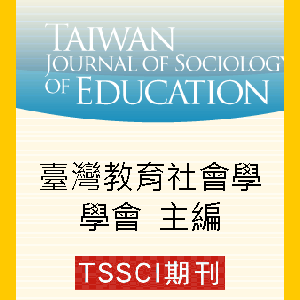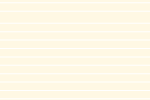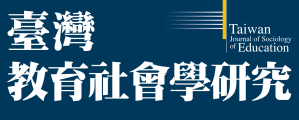| 篇名 | |
|---|---|
| 並列篇名 | An Exploration of Models of Mathematics Academic Achievement of Different Ethnical Schoolchildren in Taitung County |
| 作者 | 李鴻章 |
| 中文摘要 | 隨著教育改革如火如荼的進行,追求教育機會均等的呼聲此起彼落,在這積極的教改環境中,了解相關因素對不同族群學童學業成就的影響情形是重要的。本研究的主要目的是為探討相關因素對原住民、漢族學童學業成就的影響。研究採用2003年「臺東縣教育長期追蹤資料庫:國中小學生學習狀況與心理健康追蹤調查」作為分析資料,研究發現如下:一、對漢族學童而言,父母對子女有較高的教育期望,會進一步提升學童的教育抱負與數學學業成就。二、對漢族學童而言,有兄弟的家庭,學童會擁有較少的流行文化、較少的父母參與程度、較少的學科補習,進而影響其數學學業成就。三、家庭收入對漢族學童數學學業成就的影響不顯著,然而擁有自己的書房,對漢族學童的數學學業成就卻有不利的影響。四、原住民學童的家庭收入,會透過中介變項,影響學童的數學學業成就。五、家中主要溝通語言為國語、父母的教育期望愈高、父母愈能教導子女電腦使用、愈能參加音樂性社團等,對原住民學童數學學業成就愈有正面影響。六、原漢族群學童數學學業成就差異大,其中女生的數學成績會比男生高。在漢族中,以臺灣閩南和外省族群成績較好,在原住民族群中以布農族的數學學業成績較高。七、對不同族群而言,母親教育程度愈高、學校所在地都市化程度愈高的地區、家庭結構愈完整、父母對子女有較高的教育期望、家中擁有愈多的課外讀物等因素,對子女數學學業成就愈有正向的影響。八、單親或分居家庭、師生互動不良對原漢族群學童數學學業成就均有負面影響,教師期望、好朋友的成績對原漢族群學童數學學業成就的影響不顯著。九、對漢族學童而言,父親教育程度、家中有無兄弟、父母有無參與子女功課,以及學童有無學科補習是其與原住民學童影響因素不同處;反觀之,家庭收入、家中溝通語言為國語,以及有無參加音樂性社團等是影響原住民學童數學學業成就異於漢族學童之處。最後,本研究針對研究結果提出相關的研究建議。 |
| 英文摘要 | Responding to the concept of class reproduction and cultural reproduction, the issue of equality of educational opportunities shall be taken into account in Taiwanese educational reforms which mainly focus on deregulation shifting the characteristics of central governmental educational policies from centralized type to democratic form. Based on the concept of educational equality, this study was designed to explore the correlation between students’ academic performances and their ethnic backgrounds. Han and aborigine became ideal groups for examining the above research purposes. The analytic sample of this research is based on 2003 “TTEPS” that covers the solid data of the children of Han and Taiwanese aborgine.Research results are as follows:a. For Han schoolchildren, parents’ higher educational expectations for children further factors in educational aspirations and academic achievement of mathematics.b. For Han schoolchildren, schoolchildren from family with more than one child have less contact with pop culture, have less parental involvement, attend less after school academic programs, which further affect their academic achievement of mathematics.c. Family income has no noticeable effect on Han schoolchildren’s academic achievement of mathematics; however, whether owning personal study room plays an negative role in Han schoolchildren’s academic achievement of mathematics.d. The family income of aboriginal schoolchildren has an influence in schoolchildren’s academic achievement of mathematics through mediators.e. In families where Mandarin is the primary language, parents have higher educational expectations, parents are more capable of teaching children to use computers, and more actively take part in musical clubs, aboriginal schoolchildren’s academic achievement of mathematics fares better.f. There is a widening gap between Han and aboriginal schoolchildren’s mathematical academic performance, and schoolgirls’ math performance is better than schoolboys’.g. For all ethnical groups, the better educational background of mother, living in more urbanized area, the more complete family, parents’ higher educational expectations of children, and the more books one family has, the better a schoolchild’s math achievement is.h. Single family structure and bad interaction between teachers and schoolchildren both have negative effects on both Han and aboriginal schoolchildren’s academic achievement of mathematics.i. Teacher’s expectations and peer’s academic performance don’t have noticeable effects on both Han and aboriginal schoolchildren’s mathematical academic performance. |
| 起訖頁 | 1-41 |
| 關鍵詞 | 原漢族群、背景因素、社經背景、數學學業成就、Han and aborigine、Background factors、SES、Academic achievement of mathematics |
| 刊名 | 臺灣教育社會學研究 |
| 期數 | 200612 (6:2期) |
| 出版單位 | 臺灣教育社會學學會 |
| 該期刊-下一篇 | 大學指定科目考試跨考數學議題之初探 |








